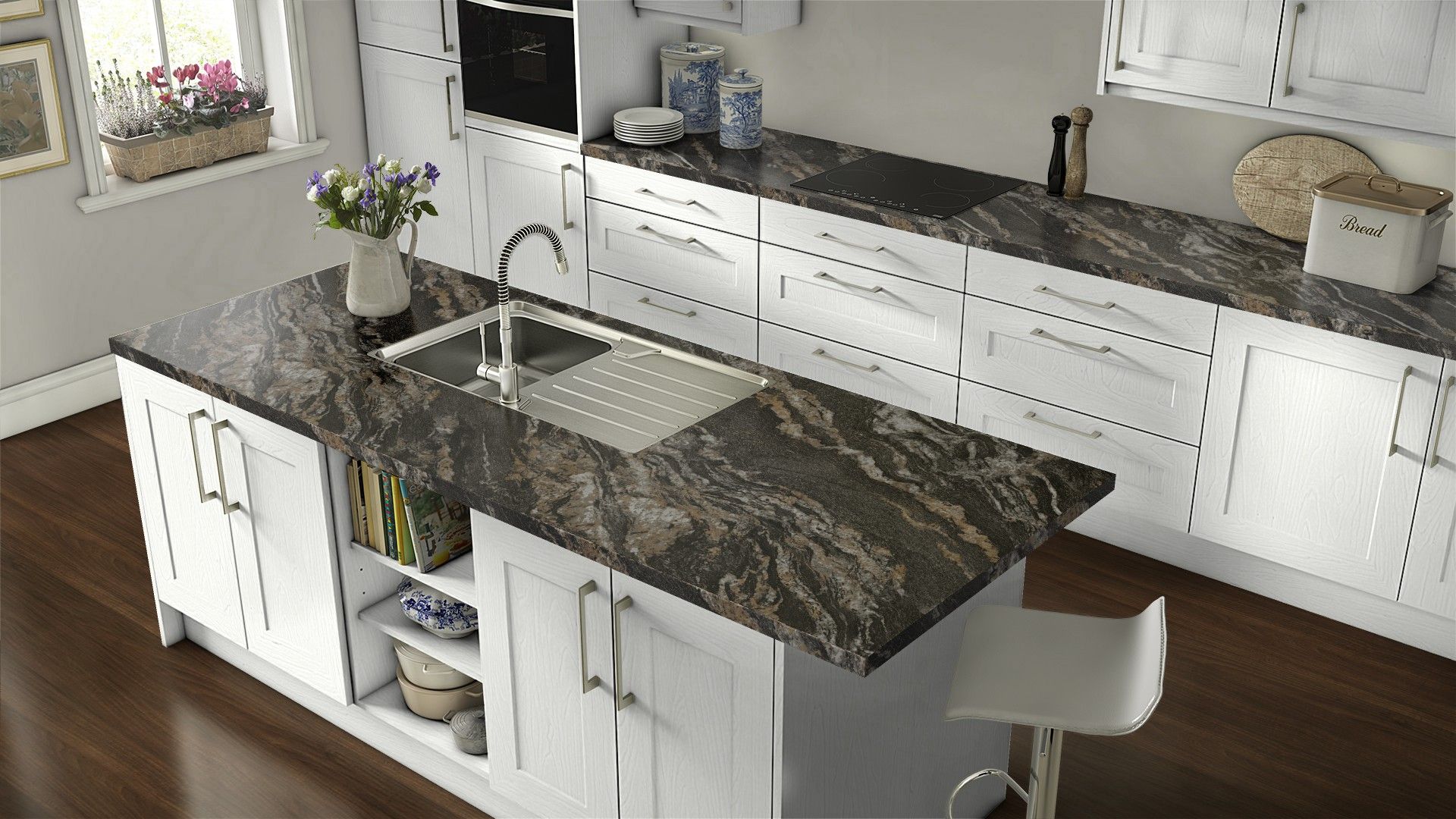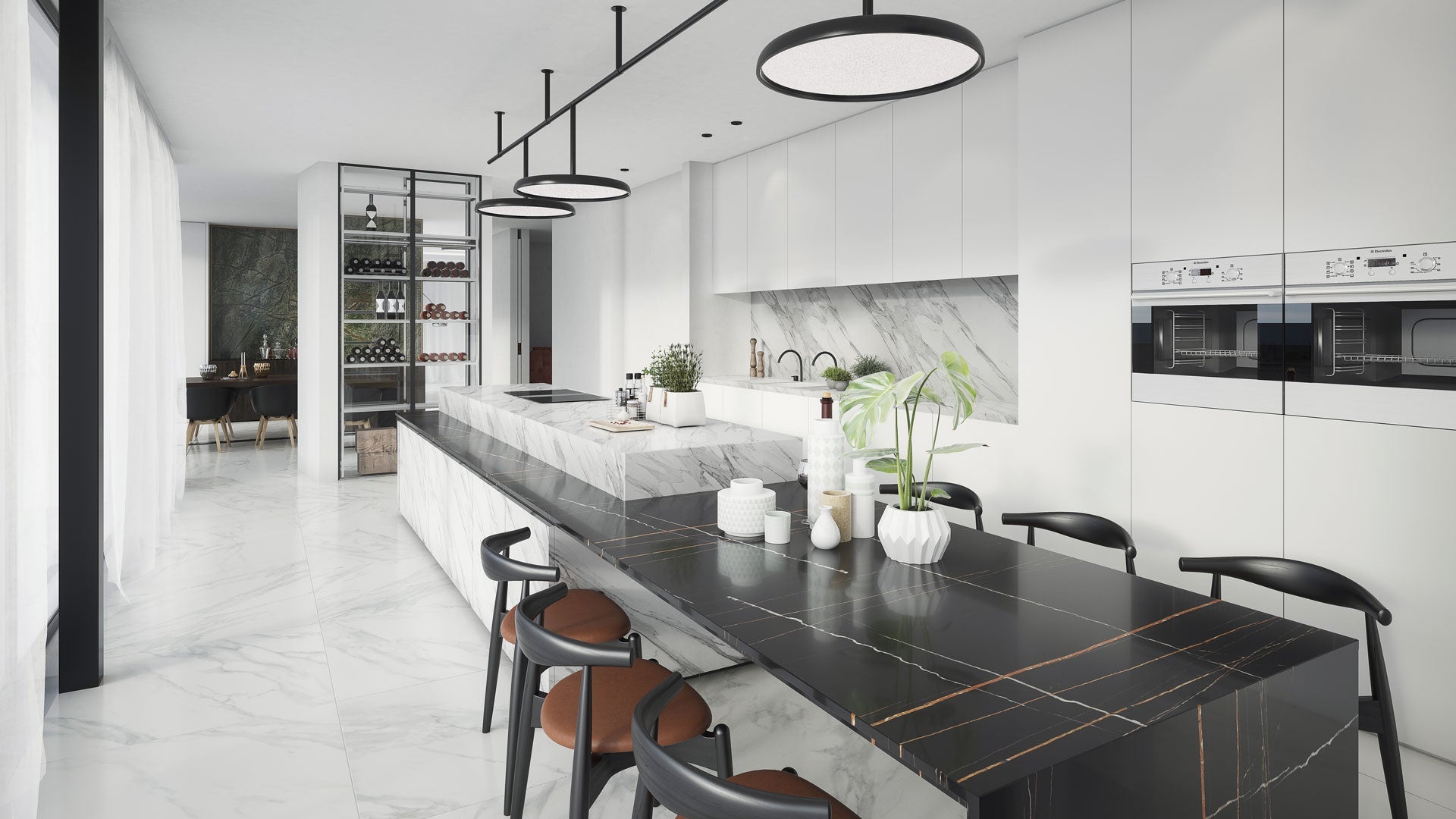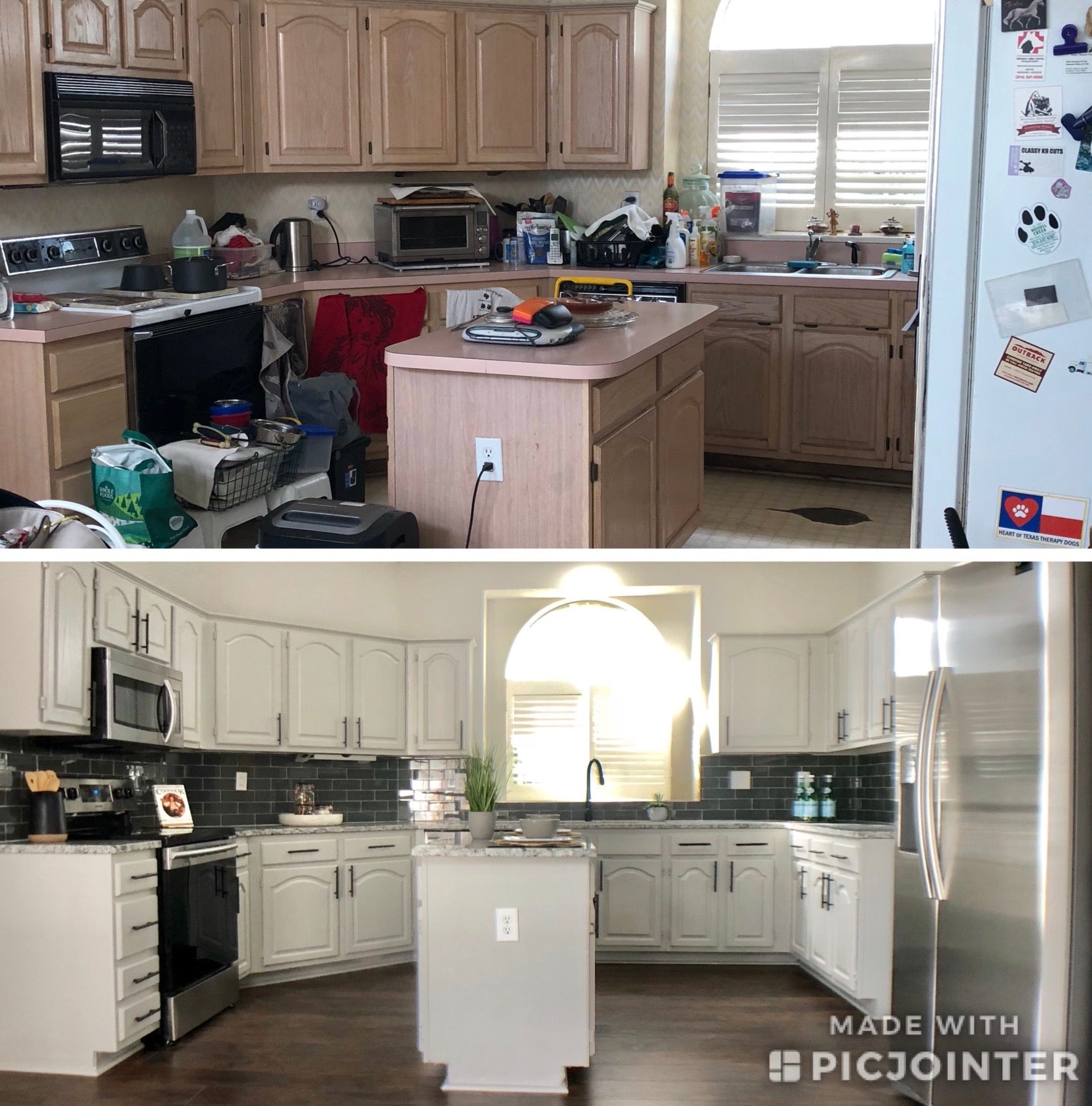
10 Surprising Reasons Granite Countertops Are Superior To Quartz
Do you have a burning desire for new countertops but can’t decide between granite and quartz?
It may seem like an impossible choice. After all, both come in a gorgeous selection of colors and patterns and both make an incredibly durable work surfaces. However, if you talk to the real experts, the fabricators, most will be quick to tell you granite is a better choice than quartz.
Granite is more durable than quartz
While it’s true that both are durable, it depends on the kind of abuse you throw at the two materials.
Do you cook or bake?
Most of us do and on a daily basis we are cutting, handling hot pots and pans, moving heavy mixing bowls, and using small appliances like stand mixers and crockpots. You need to compare how each material holds up to accidents and flat out abuse.
Quartz Will Literally Burn Under A Hot Pot
Granite is formed in intense heat and is naturally impervious to high temperatures. Hot pots and pans won’t damage the surface, though they may damage any sealant on them.
Quartz, on the other hand, isn’t nearly as heat resistant. Even Silestone, the best selling engineered stone manufacturer in the world tells you to never place hot objects on their product. This quote: “It is always recommended to use a hot pad or trivet when placing hot objects on the surface” comes directly from their website.
The resins used to give it flexibility and shape will warp and melt under high temperatures. Low quality brands have been known to discolor under crock pots and electric skillets, so if you want put hot pans directly on the counter, cross quartz off your list.

Quartz Scratches Easier Than Granite
The same resin that makes quartz susceptible to damage from heat also makes it more likely to scratch.
While it’s not easily scratched under normal use, it’s definitely more likely than granite to see scratches from dropped pans or slipping knives.
Granite, the tough, rugged stone that it is, can handle you cutting vegetable directly on its’ surface. It’s so durable that it will actually dull your knives so invest in a wood cutting block.
Granite Chips Can Easily Be Repaired
Accidents happen–dishes fall out of cabinets, kids drop things on countertops, adults aren’t much better.
If you drop a heavy pot on granite or whack a corner with a heavy ceramic bowl, it’s more likely to chip than quartz. The problem is that those chips are notoriously hard to repair, but granite is fairly easy to fix and you can probably do it yourself.
Granite is easy to maintain
If granite has a weakness, it’s the fact that it is susceptible to stains because of its composition. Because it’s a natural stone some varities can be porous, and stains can be a real possibility unless you take 10 minutes out of your day to seal it once or twice a year.

Because of the man-made resin that is used to glue quartzt together it is non-porous, so it’s stain resistant (not stain proof) and super-low maintenance.
Before you assume that this makes quartz superior to granite, consider the very reason it’s non-porous. Remember how it’s made of a resin-stone mix? The same resin that makes it low maintenance also increases its risk of damage and discoloration from the heat of your pots and pans.
Maybe you think that the ratio of resin to natural stone is trivial? Consider this.
The manufacturers claim their slabs contain about 7% resin. What they gloss over is that the ratio is by weight. The actual volume of resin makes up about 30% to 40% of the finished product. It's almost appropriate to call them resin countertops instead of quartz.
Sure, sealing stone a couple of times per year is a hassle, but a melted countertop from forgetting to use a trivet under a hot pan is a nightmare.
Granite is less expensive that quartz
This is probably the first thing most people consider when choosing their countertop.
The final cost of countertops will depend on several factors, but generally, granite countertops cost $40-50 per square foot including installation. Quartz ranges from $50-75 per square foot installed. This difference can really add up if you have a big kitchen.
Granite is more environmentally friendly
At first glance, quartz may seem more environmentally friendly because it can be engineered and manufactured close to where it will be sold. The manufacturing plants also love to boast about how they use recycled materials as well as how they conserve water.
However, both have to be quarried from somewhere–sometimes in the US, but usually abroad–so they’re both using the same energy and resources for that.
Beyond this, quartz requires extra energy and resources since the stone is crushed and non-organic resins are added to basically glue the crushed pieces of stone together.
Granite is literally formed by Mother Nature, cut out of the ground in big blocks, sawn into slabs, and then polished to a shiny surface. It doesn’t get more natural than that.
Quartz gives off less radon
You may have heard that granite is dangerous to use in countertops because it emits radon gas. Radon is a colorless and odorless radioactive gas that is produced by the breakdown of decaying uranium.
Why do people think radon is in their countertop?
Because it has trace amounts of radioactive materials in it–but so does the soil your home sits on and many other naturally occurring objects (like sand and stone).
The fact is that there is such a minute amount of radioactive material that it poses no threat to people. Even if radon gas is released as the radioactive materials in the stone decay, the released gas mixes with the regular air and is diluted to such weak levels that it poses no threat to people.
Of course, that’s not to say that radon gas isn’t a real problem–it can be, especially if you have cracks in your home’s foundation and holes in your home’s structure that are near the ground. However, radon from granite? There’s just not enough to be problematic.
Quartz fades in the sun
Very few shades of granite will fade when left in direct sunlight for extended periods of time. This is why stone slabs are often stored outdoors in direct sunlight.
Quartz, however, fades noticeably in as little as a few weeks of direct sunlight, especially the darker colors. If you have a lot of direct sunlight in your kitchen, you should avoid it.











